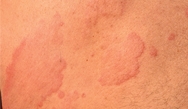Allergy, Asthma & Clinical Immunology
Behzad Darabi,
Shoboo Rahmati,
Mohammad Reza HafeziAhmadi,
Gholamreza Badfar &
Milad Azami
Abstract
Background
Investigating the association between caesarean section (SC) and childhood asthma has shown contradictory results in different studies. The present study was conducted to determine the association between SC and childhood asthma.
Material and method
The present study was conducted based on the preferred reporting items for systematic reviews and meta-analyses (PRISMA) guidelines. All the steps of the study were conducted independently by two reviewers from the inception until February 1, 2019.


.png)
